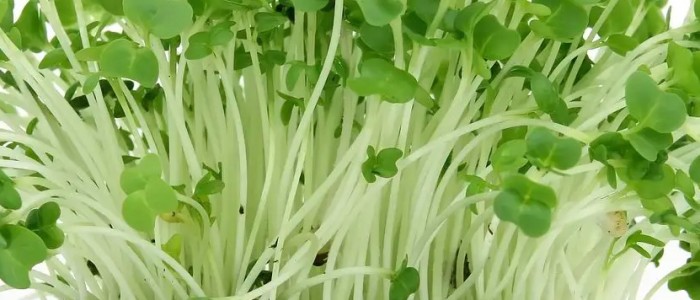-
 Turf Grass Seed Bluegrass, Bentgrass, Ryegrass, Fescues...
Turf Grass Seed Bluegrass, Bentgrass, Ryegrass, Fescues...
-
 Forage Seed Bromes, Clovers, Fescue, Wheatgrass, Legumes
Forage Seed Bromes, Clovers, Fescue, Wheatgrass, Legumes
-
 Grains Wheat Grain, Rye Grain
Grains Wheat Grain, Rye Grain
-
 Cover Crop Seed Buckwheat, Clover, Peas, Ryegrain
Cover Crop Seed Buckwheat, Clover, Peas, Ryegrain
-
 Wildflower Seed Mixtures, Singles, Annual, Perennial
Wildflower Seed Mixtures, Singles, Annual, Perennial
-
 Sprouting Seeds Fully certified Non-GMO Organic seeds for sprouts or microgreens
Sprouting Seeds Fully certified Non-GMO Organic seeds for sprouts or microgreens
Broccoli Microgreens Non-GMO Sprouting Seeds
Broccoli- A sprouting favorite that’s packed with nutrition and antioxidants. Broccoli microgreens are quick and fairly easy to grow. They have a mild nutty flavor and tender leaf that tastes like mild broccoli. They are delicious in salads, on sandwiches, in prepared dishes, or raw.
Seeding Rate:
Indoor: 4 tsp./ per 10” x 10” tray
Outdoor: 250 seeds/ per 4 feet
How to Grow: All varieties prefer well-drained soil that is rich in organic matter. Using a 10” x 20” tray filled with 2” of moist soil, spread 4 tsp. of seeds evenly across the soil. Sprinkle lightly with more potting soil. Cover tray and store for 72 hours at 70°F – misting lightly every 12 hours. Sprouts will emerge in 3 to 4 days. Uncover and place in well-lit area (or under grow lights). Harvest as microgreens when plants reach 3” tall and produce open leaves (or allow them to grow taller and harvest at 7-14 days if preferred). Cut with scissors at approx. 1/4 inch above the soil. Microgreens can be stored dry in plastic bag in the refrigerator for up to one week. No need to wash before consuming. Best if eaten right after harvesting.
Nutritional Value: Sprouting seeds are richer in protein, folate, magnesium, phosphorus, manganese and vitamins C and K than un-sprouted plants. The vitamin and mineral content varies based on the variety of the sprouting seeds. Sprouts offer a powerful source of vitamins, minerals, antioxidants, and enzymes that fight free radicals because sprouting can increase their potency by 20 times or more.

